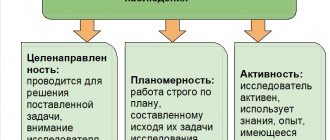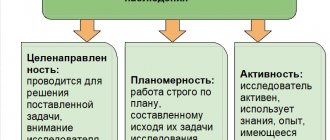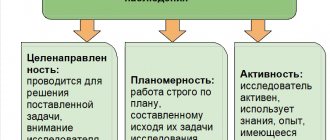For centuries, great researchers have been striving to create a complete scientific picture of man and the characteristics of his personality. Similar work is carried out by psychologists. From the moment of its inception to the present day, this science has been able to accumulate a lot of material. An impressive amount of reliable data has been accumulated through the use of a variety of methods and methods. But the most popular experiments are those conducted in psychology. Examples of many of them confirm the high reliability of the data obtained by the researchers.
A little about psychology
At the present stage, this science is a vast field of knowledge, which includes a number of scientific areas and individual disciplines. For example, there is animal psychology. The subject of its study is those features that the psyche of animals has. A broader area is human research. There are such branches of psychology as:
— a children's room, the subject of research of which is the development of mental processes and consciousness of the personality of a growing person;
- social, studying human behavior in society, as well as the influence of the press, radio, fashion, rumors, etc. on him;
— pedagogical, reflecting the picture of the patterns of personality development during the process of education and training.
There are a number of branches in psychology. Each of them examines the problems of one or another human activity. The list of such industries includes the following psychology:
- labor;
— engineering;
— aerospace;
- medical;
— legal;
- military.
At the same time, the tasks of psychology, regardless of direction, are to:
- study the essence of the phenomena considered in this area and understand their patterns;
- learn how to manage them;
- serve as a theoretical basis for relevant services in practice.
In solving its problems, psychology reveals the essence of the process aimed at reflecting the objective world in the human brain. At the same time, researchers find out how a person’s actions are regulated and his mental activity develops, as well as the formation of personality traits.
All data obtained is based on the understanding that human activity is determined not only by objective conditions. Undoubtedly, this process is directly influenced by subjective factors. Among them are personal attitudes and relationships, one’s own experience, which is expressed in abilities, skills and knowledge, etc. In this regard, the task of psychology expands somewhat and covers a range of issues that make it possible to clarify the characteristics of human activity depending on the existing subjective and objective aspects .
Notable Research
Many psychological experiments have been conducted throughout history. They differed from each other in their impact and ultimate goals. Among all this diversity, several famous experiments can be distinguished:
- Milgram's experiment. It was described in 1963. His main goal was to determine how much suffering one person can cause to another if it is part of his job duties or his boss orders him to do so. Scientists wanted to find out how people participated in the murder of fellow soldiers. After analyzing the results, Milgram proved that not all people can resist the will of their leadership.
- Hawthorne experiment. This term refers to a set of experiments that were carried out in 1924-1932. They were carried out at a factory in America, Western Electrics. Research began due to the fact that the pace of work in production had slowed down. The factory owners wanted to increase the work pace, which is why they gave the researchers complete freedom of action. During the experiment, scientists noted that workers began to work faster due to increased attention to them. The researchers concluded that the pace of work depends on the social factors surrounding it.
- Stanford prison experiment. The experiment was conducted by American scientist Philip Zimbardo in 1971. Its essence was to find out the reaction of people to the conditions of prison and the social roles imposed on them. Participants were divided into prisoners and guards. After 6 days, the experiment began to get out of control, because some guards began to show sadistic tendencies, and the prisoners began to experience serious psychological trauma.
- Me and others. It is a Soviet film in which several psychological experiments were demonstrated. The main essence of these experiments was to show how others influence the individual. After watching the film, we can say that a person is highly dependent on the opinions of others. Because of this, people often change their own opinions when they see that others do not agree with them.
- Ringelmann's experiment. It was first described in 1913, but carried out only in 1927. To conduct the experiment, scientists recruited a group of people. Study participants were required to perform one job. The first work process involved lifting heavy objects, the other involved tug-of-war. Scientists have proven that the more people working in one group, the less efficient the work process will be.
- A monstrous experiment. It was held in the USA in 1939. The purpose of the experiment was to find out how suggestible children are. To do this, the researchers selected 22 children from an orphanage and divided them into two groups. Some were constantly praised. Others were called stutterers and their shortcomings were pointed out. As a result, children who were taught only bad things began to speak worse and developed symptoms of stuttering that lasted for the rest of their lives. This experiment was hidden from the public for a long time.
- Little Albert. A famous experiment that is considered inhumane. The scientist wanted to prove that fear can be developed or suppressed in childhood. To do this, the child was shown a picture of a rat and a sharp loud sound was made. The baby began to cry. Subsequently, the child began to cry even without a sharp sound, only from seeing the image of a rat.
- Project Aversia. An experiment conducted in the ranks of the South African army. Its goal was to identify and destroy homosexuals in the army. More than 1,000 people participated in the study. They were subjected to such means as shockers, drugs, castrations, and poisoning with chemicals. Many of the participants committed suicide, while others were never able to recover from the consequences. The experiment itself failed because it was not based on any scientific evidence.
- Landis' experiments. This is a whole series of experiments that were carried out in 1924. His goal was to determine how the facial muscles that express emotion work. The experiment involved students taught by Landis. The muscles were marked with lines to see how they changed their position relative to each other. After this, students were shown or told something that could cause strong emotions. As a result, no patterns were identified.
- A boy who was raised as a girl. An experience considered the most inhumane throughout history. It was carried out over several decades - from 1965 to 2004. At the beginning of the experiment, scientists took control of a boy, Bruce Reimer, who was born in 1965. During the circumcision operation, his penis was damaged, which is why his parents were advised to raise him as a girl. The parents approved of the plan and agreed to gender reassignment surgery and further education. Psychologist John Money wanted to prove to the world that gender is a result of upbringing, and not a creation of nature, but teachers and parents began to notice that the technique did not produce results. The child exhibited all the behavioral characteristics of a boy. A few years later, the former Bruce decided to fully become a man and underwent gender reassignment surgery. Having matured, he found a wife and adopted a child. When the man turned 38 years old, he committed suicide due to severe psychological trauma received in childhood.
- Learned helplessness. This is a mental state in which a person does absolutely nothing to improve his own situation, even if there are all the prerequisites and opportunities for this. This happens if a person has made several unsuccessful attempts to change negative environmental factors. The phenomenon was discovered in 1966 by Steve Miner and Martin Seligman.
These experiments stand out the most. Any experiments conducted with people are limited by many rules to protect a person from any negative consequences.
Psychological experiments are carried out to obtain information about changes in the psyche of experimental subjects. Experience helps to understand how a person will react to external stimuli; researchers can create certain conditions and situations.
Experimental psychology
The discipline under consideration has one very significant direction. It is called experimental psychology and aims to study human behavior.
The first experiment in this area was carried out back in the 18th century. However, the experimental scientific direction developed only in the second half of the 19th century. This happened thanks to the works of W. Wund, E. Weber, V.M. Bekhterev and others.
It is generally accepted that it was after the introduction of experiment that psychology emerged as a separate science. After all, obtaining data experimentally opened up the prospect of substantiating the processes under consideration with mathematical accuracy. The reliability of existing facts began to be identified on the basis of indicators of their objectivity, verifiability and repeatability. Over time, the need to separate experimental psychology into a separate direction disappeared by itself. After all, the researchers’ method began to be used in all areas of this discipline.
Experiment as a research method
Experiment is one of the main methods of empirical research because of the importance of demonstrating cause-and-effect relationships. The experiment has been known for a long time and is used in practice at all stages of the development of science.
However, its use as a central method of scientific knowledge is recent.
In the Middle Ages, the importance of experiment was already widely recognized, but it was in the second half of the 16th century that Galileo Galilei moved from this recognition to the quest to design and organize experiments.
For Galileo, experimentation was the central point of the scientific method, from the theoretical approach to the approach to the method and to the development of experimental data.
In fact, the experiment has been studied extensively over time and has generated much debate.
Different authors have interpreted it in different ways and therefore come to different definitions regarding the concept and sometimes even contradictions.
At present, when scientific activity has been enriched from different sides, experimentation continues to acquire transcendental significance, since with its help mechanisms can be used that make it possible to isolate the phenomenon being studied, repeatedly reproduce the course of the process under fixed conditions and are subject to control, and, finally, systematically vary, look for different combinations to get the desired result.
The concept of experimentation involves questions that are asked to reveal what is not obvious. The purpose of the experiment is to collect reliable information on a specific topic.
In other words, the experiment is designed in such a way that we can make a discovery of something unknown or sense a previously hidden relationship, and its purpose is to increase the amount of data we know about the object or phenomenon being tested.
Experiments are carried out using scientific methods. Increasing confidence in the accuracy of the results is important to minimize experimental bias errors, and if the experiment is poorly designed, you may not get the right answer. You may not even get a definite answer!
In a simple and adapted way, the scientific method can be divided into these 5 steps
Experiment concept
What does it represent in psychology? This is a kind of experiment conducted under special conditions. The goal that the researcher sets for himself is to obtain psychological data through the intervention of a specialist in the processes of the subject’s activity. Not only scientists can conduct such experiments. Psychological experiments are sometimes carried out by ordinary people. At the same time, the researcher always acts in an orderly manner. It changes a certain factor of a particular process, maintaining the rest without any changes. During these actions, the person conducting such an experiment observes the results of systematic deviations in indicators and records them.
The concept of experiment can have a broader meaning. In this case, observation, testing, surveys and other research methods are included in the experiment itself.
Briefly about the history of formation and founders
When did psychology emerge as an independent experimental science?
The psyche has interested people in all cultures, but the systematic accumulation of empirical knowledge on this topic begins only in the 19th century .
Previously, psychology was considered as a field of philosophy. The first attempts to apply the experimental method are associated with the names of German scientists: Johannes Maller, Hermann von Helmholtz and Gustav Fechner.
Fechner, a German physicist and philosopher, was a key figure in the creation of psychophysics, the science concerned with the quantitative relationships between sensations and the stimuli that produce them.
He developed experimental procedures in experimental psychology to measure sensations in relation to the physical magnitude of stimuli. Most importantly, he developed an equation to express the subtle difference theory put forward earlier by Ernst Heinrich Weber.
The idea of the possibility of measuring mental phenomena was expressed by H. Wolf. He believed that the method of mathematics, if properly applied, could be used to expand other areas of human knowledge.
According to Wolf, human knowledge should be understood primarily as the ability or disposition of the human mind to perceive facts about reality.
One of the founders of EP in Russia is N. N. Lange . In his opinion, the role of experiment is to remember and record observed processes using external means.
Wilhelm Wundt and his first laboratory
Who is the creator of the first experimental psychological laboratory?
Experimental psychology emerged as a modern academic discipline in the 19th century , when Wilhelm Wundt introduced a mathematical and experimental approach to the field.
Wilhelm Maximilian Wundt (1832, 1920) , German psychologist and philosopher, considered the first representative of experimental psychology. Treats psychology as a natural science that must be studied by research methods.
He separated psychology from philosophy by analyzing the workings of the mind in a more structured way, with an emphasis on objective measurement and control.
Initially, the field was limited to basic experimental research on topics such as learning and conditioning, impressions and perception, motivation and emotion.
Wundt opened the Institute of Experimental Psychology at the University of Leipzig in Germany in 1879. This was the first laboratory dedicated to psychology.
This center conducted research on the processes of binding and apperception. He considered introspection an important research method .
The laboratory became a focal point for those seriously interested in psychology, first for German philosophers and psychology students, then for American and British students. All subsequent psychological laboratories in the early years were closely modeled on Wundt's model.
The need for
Experiments in the field of psychology make it possible to decompose a particular phenomenon into its individual components, in order to then study each of them. Also, in the course of practical research, it is possible to record the results obtained with a certain accuracy and monitor the process of development of the subject of study. In this case, the experimenter most often does not wait for the occurrence of the mental phenomenon he is considering. He actively recreates it in the most favorable conditions for this, varies it, intervenes in the process in a planned manner, repeatedly repeating the features of the experiment.
Often, mental phenomena are studied in natural conditions using direct observation techniques. But the use of an experiment makes it possible to artificially separate the phenomenon being studied from others and purposefully vary the conditions of influence on the subjects. In the course of such work, the results obtained are traced, which is the basis for certain conclusions.
What types of experimental method is divided into?
In practice, physical, computer, mental and critical experiments are most often used. The most common physical experiment is to understand nature. Thanks to such experiments, in particular, erroneous hypotheses of physics that were studied as part of theoretical research are revealed. Computer experiments are connected to the computer process. During testing, specialists process initial data about a specific object, resulting in information about the identified properties and characteristics. The thought experiment method can affect various fields of study, including physics and philosophy. Its fundamental difference is the reproduction of the conditions of reality not in practice, but in the imagination. In turn, critical experiments are not aimed at studying specific objects or phenomena, but at confirming or refuting a certain hypothesis or theory.
Classification
There are different types of experiments in psychology. Moreover, they are distinguished based on the conditions of implementation, goals, nature of influence and many other factors.
Experimental methods in psychology themselves are divided into laboratory and natural, as well as formative research. In addition to this classification, there is a division into aerobatic (primary) experience and subsequent ones. Also, experiments can be explicit and have a hidden purpose, etc. Let's look at the most frequently used of them in more detail.
Advantages of the experimental method
The advantages of this approach in research primarily include the controllability of conditions. The researcher organizes the process in accordance with his capabilities and resources, which greatly facilitates the work. Also, the advantages of the experimental method are determined by the possibility of its repetition, which makes it possible to clarify the data without adjustments for changes in test conditions. On the contrary, flexible process correction capabilities allow you to track the dynamics of changes in certain qualities and properties of an object.
Of course, the main advantage of this technique is the accuracy of the data. This parameter will depend on how accurately the process conditions were prepared, but within the given framework and parameters you can count on a high degree of reliability. The observation method especially reveals the advantages of such tests in terms of accuracy. Against this background, the experiment is more controllable, which makes it possible to exclude third-party factors of interference in the research process.
Laboratory experiment
Such studies are classified according to the conditions under which they were conducted. Moreover, laboratory is one of the most commonly used experimental methods in psychology. What does it consist of?
A laboratory experiment is a type of research that is carried out under artificially created conditions. What are they? An example of this is obtaining data directly in a scientific laboratory, where the interaction of the subject (person or group of persons) under study occurs only with factors of interest to the experimenter.
What are the advantages of doing this kind of work? With the help of a laboratory experiment, during which the researcher uses recording instruments, it is possible to obtain indications about the time of occurrence of various mental processes, for example, the speed of formation of work and educational skills, the speed of a person’s reaction, etc.
Based on this description, we can talk about the main features of experiments conducted in laboratory conditions. Such experiments are attractive because of the following:
— high accuracy of the results obtained;
— the possibility of conducting repeated experiments with the creation of similar conditions;
— the possibility of exercising maximum control by the experimenter over the entire situation.
All this is the advantage of such works.
However, in this case, the subjects are aware that they are taking part in scientific work; research subjects are in conditions that do not correspond to reality.
This is the disadvantage of this type of experiment. An artificially created environment sometimes disrupts the normal course of the processes being studied.
General information
Robert Woodworth, who published his classic textbook on experimental psychology (Experimental psychology), defined an experiment as a structured study in which the researcher directly changes some factor (or factors), holds the others constant, and observes the results of systematic changes. He considered the control of the experimental factor
, or in Woodworth's terminology, the "independent variable", and tracking its effect on
the observed consequence
, or "dependent variable". The experimenter's goal is to keep all conditions constant except one—the independent variable.
In a simplified example, the independent variable can be considered as a relevant stimulus
(
St(r)
), the strength of which is varied by the experimenter, while the dependent variable is the reaction (
R
) of the subject, his psyche (
P
) to the influence of this relevant stimulus.
However, as a rule, the desired stability of all conditions, except for the independent variable, is unattainable in a psychological experiment, since almost always, in addition to these two variables, there are also additional variables, systematic irrelevant stimuli
(
St(1)
) and random stimuli (
St(2)
), leading to systematic and random errors, respectively. Thus the final schematic representation of the experimental process looks like this:
Therefore, in an experiment, three types of variables can be distinguished:
- Independent variable
- Dependent Variable
- Additional variables (or external variables)
So, the experimenter is trying to establish a functional relationship between the dependent and independent variables, which is expressed in the function R
=f(
St(r)
), while trying to take into account the systematic error that arose as a result of the influence of irrelevant stimuli (examples of systematic error include the phases of the Moon, time of day, etc.).
To reduce the likelihood of the impact of random errors on the result, the researcher seeks to conduct a series of experiments (an example of a random error could be, for example, fatigue or a speck of dust getting into the subject’s eye).
The main objective of the experimental study
The general goal of psychological experiments is to establish the existence of a connection R
=f(
S, P
) and, if possible, the type of function f (there are various types of relationships - cause-and-effect, functional, correlation, etc.).
In this case, R
is the subject’s reaction,
S
is the situation, and
P
is the subject’s personality, psyche, or “internal processes.” That is, roughly speaking, since mental processes cannot be “seen,” in a psychological experiment, based on the reaction of the subjects to stimulation regulated by the experimenter, some conclusion is made about the psyche, mental processes or personality of the subject.
Stages of the experiment
In each experiment, the following stages can be distinguished. The first stage is setting the problem and goal, as well as constructing an experimental plan. The experimental plan should be built taking into account accumulated knowledge and reflect the relevance of the problem.
Validity in a psychological experiment
As in natural science experiments, so in psychological experiments, the cornerstone is the concept of validity: if the experiment is valid, scientists can have some confidence that they measured exactly what they intended to measure. Many measures are taken to ensure all types of validity are met. However, it is impossible to be absolutely sure that in any, even the most well-thought-out study, all validity criteria can be completely met. A completely flawless experiment is unattainable.
Natural experiment
In order to eliminate the lack of laboratory research, in practice, phenomena are often analyzed in their usual situation. To do this, a natural experiment is carried out.
In psychology, during such work, the subject is in his usual living conditions. The specialist intervenes in this process only slightly.
What are the advantages of a natural experiment? They are that:
— the conditions in which the subjects are located correspond to reality;
— research subjects most often do not suspect that they are participating in scientific developments;
— the results obtained are relatively accurate.
Among the disadvantages of a natural experiment are:
— the impossibility of repeating it under similar conditions;
- lack of full control of the specialist over the situation.
This is the main advantages and disadvantages of experiments in psychology conducted in natural conditions. On the one hand, in this case there are undeniable advantages. After all, for example, a student mastering a particular subject is able to remember the material given to him in natural conditions in a completely different way than he would do it in the presence of a researcher. But in such a situation it becomes simply impossible to take into account the inevitable occurrence of some factors influencing the process.
Experimental models
Typically, perfect and random experiments are distinguished. The first includes a model of organization, which for one reason or another cannot be implemented in practice, that is, under conditions of scientific observation. This technique not only helps to complete the task set regarding the study of the object, but also helps to improve the experimental method by identifying individual errors. As for the random experiment model, it is based on the concept of a random experiment, which may correspond to a real test, but its result will be unpredictable. The random experimental method requires compliance with a wide range of requirements. For example, the prepared mathematical research model in it must adequately describe the experiment. Also, when setting up a problem, researchers precisely determine the model within which the initial mathematical data for the experiment and the results obtained will be compared.
Classification of experiments based on their purpose
Depending on the task, the following types of experiments in psychology are distinguished:
- Search. Such an experiment is carried out to determine the presence of cause-and-effect relationships between the phenomena under consideration. Moreover, this technique is used only at the initial stages of the study. The data obtained should allow us to formulate a hypothesis, as well as identify independent, dependent and secondary variables, determining ways to control them.
- Aerobatic. Such experiments are tentative. During their implementation, the main hypothesis, approaches to research, etc. are clarified. The requirements for an experiment in pilot type psychology are to conduct it before labor-intensive and voluminous work in order to select a specific direction, which would allow rational use of funds. Obtaining data from this type of experiment is carried out by involving a smaller number of subjects, using abbreviated plans and without much control over external factors. Of course, the reliability of the results of such an experiment is low, but they still make it possible to avoid gross mistakes associated with putting forward the main hypothesis, constructing work plans, etc. Sometimes pilotage specifies the main assumption, narrowing the search area, and also finally indicates a technique suitable for large-scale research.
- Confirmer. This experiment is carried out to establish a type of functional connection, as well as to clarify the quantitative relationship between the data obtained. This type of work is performed at the final stage of the study.
Advantages and disadvantages of the experiment
Advantages:
- Ability to study cause-and-effect relationships between events;
- high objectivity, since the results of the experiment are actual events;
- Ability to test the effectiveness of marketing decisions, especially for new products (test marketing);
- Ability to control the environment;
Flaws:
- A probabilistic statement about the strength and nature of the influence of a given independent variable on a dependent variable;
- Uncertainty in the transferability of test results to other environmental conditions;
- The presence of a time lag (lag) between the completion of the experiment and the adoption of marketing decisions;
- Difficulty in eliminating the influence of extraneous influences;
- high time and financial costs;
- high level of risk.
Classification of experiments based on the nature of their influence
Taking into account this criterion, there are the following types of experiments in psychology:
- Stater. During such an experiment, the specialist does not change any properties of the participant, does not seek to form new qualities in him or develop those that he has. Teacher-researchers very often use ascertaining experiments in developmental psychology. It allows you to establish the state of the existing problem and record the fact that there is a connection between the existing phenomena. The purpose of an ascertaining experiment may be, for example, to identify the degree of influence of the family on the process of developing the personality of a child attending primary school.
- Formative. This is one of the research methods that is widely used by specialists and teachers. A formative experiment involves a person obtaining certain qualities that are specified by a specialist. The necessary conditions are specially created for this. The results obtained do not raise any doubts, since it is obvious that they were formed during the implementation of the work. A formative experiment is used for an in-depth study of the process of personality formation, as well as all stages of its occurrence. In addition, this method is most effective when testing new methods of education and innovative technologies. A formative experiment is not always carried out according to a pre-planned plan. First of all, the research problem is determined, and only after that I formulate a hypothesis, create a work program and conduct tests. The entire process is closely monitored, and its results are recorded for further understanding, which will allow the formulation of conclusions. Typically, either two people or two groups of people are involved in a formative experience. Moreover, one of them is considered experimental, and the other – control. Participants in psychological experience are given tasks that contribute to the formation of a certain quality. The control group is not given such a task. After completing the formative experiment, researchers conduct a comparative analysis of the results obtained and evaluate them.
- Control. This type of work carried out by specialists is a repeated measurement of certain indicators of the state of an object (a person or a group of people) to compare them with those that were recorded before the start of the experiment. The data obtained is also compared with those obtained by a group of people who did not receive tasks.
Psychological and pedagogical experiment
A psychological-pedagogical experiment, or formative experiment, is a type of experiment specific exclusively to psychology, in which the active influence of the experimental situation on the subject should contribute to his mental development and personal growth.
A psychological and pedagogical experiment requires very high qualifications on the part of the experimenter, since unsuccessful and incorrect use of psychological techniques can lead to negative consequences for the subject.
A psychological-pedagogical experiment is one of the types of psychological experiments.
During a psychological and pedagogical experiment, the formation of a certain quality is assumed (that is why it is also called “formative”), two groups usually participate: experimental and control. Participants in the experimental group are offered a specific task, which (in the opinion of the experimenters) will contribute to the formation of a given quality. The control group of subjects is not given this task. At the end of the experiment, the two groups are compared with each other to evaluate the results obtained.
The formative experiment as a method appeared thanks to the theory of activity (A.N. Leontiev, D.B. Elkonin, etc.), which affirms the idea of the primacy of activity in relation to mental development. During a formative experiment, active actions are performed by both the subjects and the experimenter. A high degree of intervention and control over the main variables is required on the part of the experimenter. This distinguishes experiment from observation or examination.
Classification by level of awareness
What other types of experiments in psychology exist? Similar studies are divided according to the level of awareness of what is happening by a person.
In this case, the following are distinguished:
- An obvious experiment. When conducting it, the subject has comprehensive information about the goals and objectives of the research being conducted.
- Intermediate. This option involves familiarizing the subject with only part of the information about the experience. Other information is either distorted or concealed.
- Hidden. The participant, as a rule, knows nothing about this experiment. He does not know not only about the goals that psychologists face, but also about the very fact of carrying out the work.
Boy raised like a girl
This experiment is one of the most inhumane in history. It, so to speak, was held from 1965 to 2004 in Baltimore (USA). In 1965, a boy named Bruce Reimer was born there, whose penis was damaged by doctors during a circumcision procedure. The parents, not knowing what to do, turned to psychologist John Money and he “recommended” that they simply change the gender of the boy and raise him as a girl. The parents followed the “advice”, gave permission for gender reassignment surgery and began raising Bruce as Brenda. In fact, Dr. Money has long wanted to conduct an experiment to prove that gender is determined by upbringing and not by nature. The boy Bruce became his test subject.
Despite the fact that Mani noted in his reports that the child was growing up as a full-fledged girl, parents and school teachers argued that, on the contrary, the child exhibited all the character traits of a boy. Both the child’s parents and the child themselves experienced extreme stress for many years. A few years later, Bruce-Brenda decided to become a man: he changed his name and became David, changed his image and had several operations to “return” to male physiology. He even married and adopted his wife's children. But in 2004, after breaking up with his wife, David committed suicide. He was 38 years old.
What can be said about this “experiment” in relation to our everyday life? Probably, only that a person is born with a certain set of qualities and predispositions determined by genetic information. Fortunately, not many people try to make daughters out of their sons or vice versa. But, nevertheless, when raising their child, some parents do not seem to want to notice the characteristics of their child’s character and his developing personality. They want to “sculpt” the child, as if from plasticine - to make him the way they themselves want him to be, without taking into account his individuality. And this is unfortunate, because... It is precisely because of this that many people in adulthood feel unfulfilled, frailty and meaninglessness of existence, and do not receive pleasure from life. The small is confirmed in the big, and any influence we have on our children will be reflected in their future lives. Therefore, you should be more attentive to your children and understand that every person, even the smallest one, has his own path and we must try with all our might to help him find it.
The experiments we reviewed in this article, as you might guess, represent only a small part of the total number ever conducted. But even they show us, on the one hand, how multifaceted and little studied the human personality and psyche are. And, on the other hand, what a huge interest a person arouses in himself, and how much effort is made so that he can understand his nature. Despite the fact that such a noble goal was often achieved by far from noble means, one can only hope that a person has somehow succeeded in his endeavor, and experiments that are harmful to a living being will stop being carried out. We can say with confidence that it is possible and necessary to study the human psyche and personality for many more centuries, but this should be done only based on considerations of humanism and humanity.
Classification by possible influence
According to this characteristic, there is also a certain gradation of psychological experiences. In this case, the following are distinguished:
— provoked research;
- an experiment that is referred to afterwards.
Provoked research is classic. When conducting this experiment, a specialist independently changes the experimental conditions. That is why those types of reactions that are observed in the test subject are considered provoked.
The experiments referred to are experiments in which there is no intervention by the researcher. This method is used in cases where the impact on the subject can cause serious psychological or physiological disturbance.
Subject and methodology of research
Experimental psychology is not a specific field of psychology , but generally refers to the standard methods and techniques that scientifically trained psychologists use to collect and analyze data.
The object of study in psychology is a person.
The experimental method attempts to explain human activity, the functional organization of mental processes, by manipulating variables that can lead to similar behavior.
It is primarily associated with the discovery of laws describing manipulated relationships . The term generally refers to all areas of psychology that use the experimental method.
The methodology contains a description of the object and study procedures, methods of recording and processing the obtained data. Experiments are conducted between subjects and within subjects. Based on one research method, a whole range of techniques can be created .
Areas of psychology include the study of sensation and perception, learning and memory, motivation, and biological psychology.
However, there are experimental branches in many other fields, including child psychology, clinical psychology, educational psychology, and social psychology. Typically, an experimental psychologist deals with normal, intact organisms .
Experiment structure
What is included in the list of main criteria that make up the studies discussed in the article? The structure of a psychological experiment includes:
- Researched (tested) object or group.
- Researcher (experimenter).
- Stimulation, which is a method chosen by a specialist to influence the subject.
- The response of the experiment participant to stimulation, that is, his psychological reaction.
The conditions of the study, which represent additional influences, can influence the reaction of the subject.
Features of psychological experiments
A separate group of experiments is represented by the psychological sphere, which determines its specificity. The main subject of study in this direction is the psyche. Accordingly, the conditions for conducting research will be directly determined by the life activity of the subject. And here we can note some contradiction with the basic principles of the method under consideration as such. Compared to other types of research, one cannot count on complete control and creation of test conditions. One can only proceed from biased data provided by a psychological experiment. The method of psychological research also does not allow us to isolate one of the processes of mental activity, since experimental influences affect the body as a whole. Similar studies can be carried out on both humans and animals. In the first case, the conditions of the test sometimes include initial instruction for the subject.
Natural experiment conditions
Key conditions and features of experimental research include manipulation and control. Manipulation in this context means that the experimenter can control the subjects of the study and how they experience the effects. At least one variable may be manipulated. Controlled trials can only answer certain types of epidemiological questions, and they are not useful when investigating questions for which randomization is either not feasible or unethical.
As an example, suppose an investigator is interested in the health effects of poor housing. Because it is not practical or ethical to randomly assign people to variable housing conditions, the subject is difficult to study using an experimental approach. However, if there was a housing policy change, such as a lottery for subsidized mortgages, that would allow some people to move into more desirable housing while leaving other similar people in their previous substandard housing, it might be possible to use this policy change to study the impact of changing housing health conditions.
In another example, the well-known natural experiment in Helena (Montana, USA), in which smoking was banned in all public places for a six-month period. The researchers subsequently reported a 60 percent drop in heart attacks in the study area during the ban's duration.











